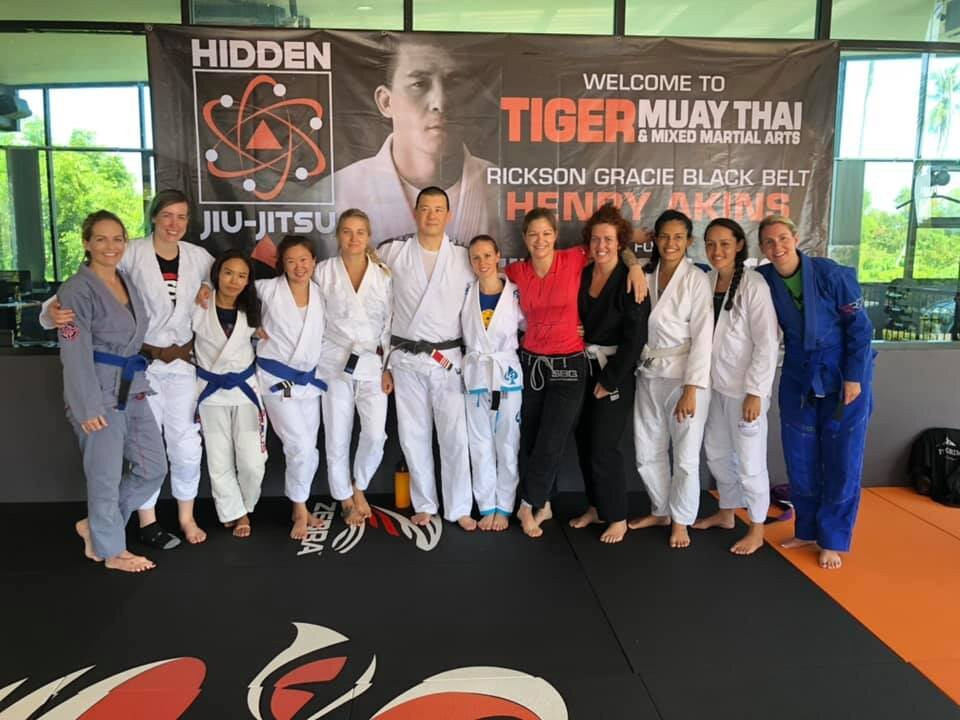Developing Your Defense
Defense is a core part of any martial art. In fact, it’s a vital part of any virtually sport or competition, even in games like chess. However, the role that defense plays in jiu-jitsu is more important than other martial arts, largely because jiu-jitsu was created to give smaller fighters a chance to beat far larger fighters through the use of technique rather than strength or speed.
Within the world of jiu-jitsu, technique is not simply knowledge of individual moves. Instead, it is about learning how to use one’s energy efficiently and, more importantly, how to survive. As
Starting with Survival
As Henry Akins of Hidden Jiu-Jitsu notes in the below video, your first few weeks or even months in jiu-jitsu class are about learning how to survive. Even though you may be taught specific techniques during the first half of class, most people who are new to jiu-jitsu and do not have a background in martial arts will spend the second half of the class just trying to not get tapped. They may try to incorporate the move of the day, but their real goal is just defending against their opponent’s attacks and surviving longer and longer.
Even if you have been to several classes and know a few moves, you are not really doing jiu-jitsu. You’re just using these moves in a slapdash way as you try to defend yourself and survive. Eventually, however, you begin to develop a coherent defense. More importantly, as you become more familiar with the feeling of being in a physical contest the less you will panic; the more you will be able to think clearly; and the better you will be at conserving energy, using technique, and knowing when to rely on brief and explosive uses of energy to get out of bad situations.
“Once you know that it’s going to be difficult for people to submit you, once you have the understanding that you can protect yourself and stay safe, what happens is you develop confidence. With that confidence, you tend to panic less, and we tend to use less strength,” Henry says.
Building on Your Defense
If the first skill you develop as you learn jiu-jitsu is survival or defense, then the next skill is escape. From there, we then learn how to take the dominant position. The next skillset is learning how to maintain the dominant position, to wear down an opponent’s defenses until they either make a mistake or lack the strength and stamina to continue. The final skillset is learning how to capitalize on these mistakes and submit the opponent.
However, as Henry says, it’s hard to get to any of these points without a strong backbone of defense and ability to escape that gives one the opportunity to go on the attack. “If we’re never in dominant positions, it’s really difficult to develop the attack.”

Mastering Defense
However, the inverse of this is also true: If you’re always dominating, it’s difficult to develop your defense. This is something that more intermediate and even advanced fighters often forget as they begin to climb the ranks. While this allows them to develop their attacks, it can hinder the development of their defense.
Consequently, Henry recommends that you allow lower belts to go deeper and deeper into an attack when you’re rolling. Allow them to take it to the point where you can’t get out and tap. This teaches you how far you can let something go and still get out of it before it’s too late. You can then constantly try to push that boundary.
This was a methodology that Rickson Gracie used, and it was one of the reasons that he became such a formidable fighter. He could escape anything, and he developed this skill by purposefully starting in the worst possible positions. He was like Houdini in that respect; he always wanted to start as close to being trapped as possible, and then figure out a means of escape or at the very least a way to survive until the other fighter gave up. Henry notes that Rickson once asked him to start by placing Rickson in a crucifix with his gi wrapped around his neck. Rickson just kept making minor adjustments and slight moves that allowed him to not escape, but at least survive longer without getting choked out. Eventually, Henry had to just let him go because he was wasting so much energy.
Rickson developed himself to become invincible. It was not that he always won; it’s that he could never be beaten because he understood the importance of defense and that survival and efficiency make up the backbone of any good defense. For students, it is crucial to remember that these two principles—survival and efficiency—should always be central to your jiu-jitsu game as you improve and become more confident in your abilities to attack.

